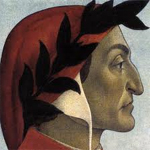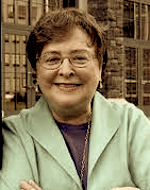
Click 'n flow.
By CHARLIE WHITE [Mashable] – Do dads really have an influence on the musical tastes of their offspring? This amusing flowchart, created for Father’s Day in honor of dads who rock, predicts the kind of music you prefer by the tunes your father listened to when you were growing up.
Continue reading “· The perfect Father’s Day gift? A flowchart! With Phish!” »
By ERIC HAND [Nature] – As a reader with a finite amount of time, [Erez] Lieberman Aiden likes to say, you pretty much have two choices. You can read a small number of books very carefully. Or you can read lots of books “very, very not-carefully”. Most humanities scholars abide by the former approach. In a process known as close-reading, they seek out original sources in archives, where they underline, annotate and cross-reference the text in efforts to identify and interpret authors’ intentions, historical trends and linguistic evolution. Continue reading “· Very not-close encounters with 18 million books. Plus: What does the Lit Lab have to do with lit?” »

Click the dog, see the pack.
By NANCY LEVINE [Lens Culture] – My interest in the world of the senior dog began as my own two dogs began to approach the end of their days. This was at a time when I had lived enough years to start imagining my own mortality. I entered a world of grace where bodies that had once expressed their vibrancy were now on a more fragile path. Continue reading “· To an old dog, every day’s a brand new trick.” »
By HAROLD POLLACK [Democracy] – Today, no serious medical or scientific expert believes that vaccines cause autism. Yet many nervous parents continue to think otherwise. One of these is actress and model Jenny McCarthy. During a 2007 “Oprah” appearance, she said that not long after her son received his shot, “The soul was gone from his eyes.” When Oprah asked what McCarthy knew about vaccine science, McCarthy responded, “My science is Evan, and he’s at home. That’s my science.” Winfrey said, “Thank God for Google,” to which McCarthy responded, “The University of Google is where I got my degree from.” Continue reading “Jenny McCarthy and the science majors at Google U.” »
By CHARLIE BECK, WILLIAM J. BRATTON, GEORGE L. KELLING [City Journal] – Skid Row’s crisis in the early 2000s was even more complex than the New York subway’s had been. Fires raged in the middle of streets at night; people urinated, defecated, and engaged in sex acts in open view; youths partied with drugs and alcohol; sexual predators roamed free; the neighborhood became a dumping ground for released prisoners and for sick people, probably homeless, whom ambulances left on the street, still in hospital garb and on gurneys. The area was such a lucrative place to deal drugs that gangs didn’t bother fighting over turf. Certainly, there were large numbers of homeless, in part because the city’s missions and service centers lay in the heart of Skid Row. But the neighborhood’s core problem wasn’t homelessness. Just as in New York, it was a culture of lawlessness that had been tolerated for decades. If any of these researchers had bothered to go into the streets, they would have seen that. Continue reading “· Bummed out by Skid Row research.” »
By Michelene Wandor.
ROUND IT COMES AGAIN. The French Open (tennis). Impending Wimbledon (more tennis). Another summer marked by competing drought and rain. Plus an intensive week of nightly viewing, culminating in a winner (talent). Britain’s Got Talent is, as ever, hosted by Ant and Dec, the Cameron and Clegg of ITV. One of the pair (which pair?) has a baby face, the other a pointed chin; otherwise they are Geordie Jedwards. Even they (which pair?) play the game of not knowing who is which. Continue reading “· Talent’s got Britain. Cowell’s got the world.” »
By L. M. KIT CARSON [TOH/Thompson on Hollywood] – [Richard] Leacock. Who raises the question: “What does a camera see?” His answer – camera sees everything: what you show it – and at the same time, what you don’t show it – this is how he played out the foundation of cinema-verite. Continue reading “· Richard Leacock’s camera made even going for lunch an adventure.” »
 By A. N. WILSON [New Statesman] – What I needed when I first read the Comedy was a book that did not take for granted any knowledge of Dante’s background. I needed a guide to 13th-century Florence. I needed someone who had read the principal Latin texts in Dante’s library. I needed someone who had at least a basic grasp of medieval philosophy and who was prepared to tell me who was pope, who was king of France and, when there were battles or political quarrels, what the fuss was about. And then again, I wanted this author to tell me how Dante’s life and work did, and did not, relate to his contemporaries. Continue reading “· To hell with the blessed in heaven, says a deranged Dante.” »
By A. N. WILSON [New Statesman] – What I needed when I first read the Comedy was a book that did not take for granted any knowledge of Dante’s background. I needed a guide to 13th-century Florence. I needed someone who had read the principal Latin texts in Dante’s library. I needed someone who had at least a basic grasp of medieval philosophy and who was prepared to tell me who was pope, who was king of France and, when there were battles or political quarrels, what the fuss was about. And then again, I wanted this author to tell me how Dante’s life and work did, and did not, relate to his contemporaries. Continue reading “· To hell with the blessed in heaven, says a deranged Dante.” »
By PEGGY SHUMAKER [Brevity] – We’ve come to hear Zuill Bailey play Bach’s suites for solo cello. All of them. On one evening. Played by one cellist. This is not done. Athletic, audacious, ambitious. Gorgeous.
We’ve come to hear him play a cello crafted when Bach was eight years old, a cello Bach probably heard, a cello whose sound Bach might have had in mind. This cello carries an ornament, a rose still visible if you look sideways under the fingerboard. Continue reading “· Cello, bow, Bach, Bailey, brief.” »
By GEORGE ATHANASSAKOS [Globe and Mail] – The knife has hit the bone, as they say in Greece, and there is not much more Greeks are willing to give. So it will be either social unrest or bankruptcy.
The best scenario would be for Greece to declare bankruptcy, go back to the drachma, and devalue its currency. This money illusion will make Greeks feel better in that their salaries will not get cut in drachma terms even though in essence they will be poorer as all imported goods will cost more. Continue reading “· To make Greeks happy, declare them bankrupt and give them a devalued drachma.” »
 By ELIZABETH A. JOHNSON, CSJ [from a letter to the Committee on Doctrine of the United States Conference of Catholic Bishops in response to charges that her book, Quest for the Living God: Mapping Frontiers in the Theology of God, ‘contains misrepresentations, ambiguities, and errors with regard to Catholic teaching,’ via the National Catholic Reporter] – The category panentheism (all-in-God) has been developed precisely to delineate and demarcate a view different from pantheism (all [is] God). As used in contemporary theology, it provides a third option between theism and pantheism, one which gives stronger play to divine immanence than does modern theism, while maintaining the absolute transcendence of God which pantheism does not. Continue reading “A theologian explains panentheism to the bishops, beautifully.” »
By ELIZABETH A. JOHNSON, CSJ [from a letter to the Committee on Doctrine of the United States Conference of Catholic Bishops in response to charges that her book, Quest for the Living God: Mapping Frontiers in the Theology of God, ‘contains misrepresentations, ambiguities, and errors with regard to Catholic teaching,’ via the National Catholic Reporter] – The category panentheism (all-in-God) has been developed precisely to delineate and demarcate a view different from pantheism (all [is] God). As used in contemporary theology, it provides a third option between theism and pantheism, one which gives stronger play to divine immanence than does modern theism, while maintaining the absolute transcendence of God which pantheism does not. Continue reading “A theologian explains panentheism to the bishops, beautifully.” »
By CHRIS FUNKHO– USER [Jacket2] – I’m completing this book having recently participated in the 2011 E-Poetry Festival. For my own part, as a performer, I assembled a panhemispheric musical group named grope uSurp, comprised of other multimedia artists and friends attending the festival; Lucio Agra, John Cayley, Stephen Cope, Andrew Klobucar, Siew-wai Kok, and Eugenio Tisselli joined me onstage. One of our pieces, proposed by Cayley, remade a Neil Young lyric (“Albuquerque”) that was particularly apt to the gathering. Continue reading “· The anxieties of attending the 2011 E-Poetry Festival.” »

LM Kit Carson (1967)
LONG BEFORE THERE WAS a Spinal Tap, there was L.M. Kit Carson, armed with an Eclair 16 camera, walking around Manhattan looking for his life in Jim McBride’s 1967 faux documentary, David Holzman’s Diary. Screened haphazardly in the late ’60s, the film was discussed on campuses, but for the most part it’s remained a hard-to-find classic. This month, that will change and David Holzman and his wry-on-film diary, in a digi-restored version, will be served up at New York’s Museum of Modern Art. The first screening is scheduled for 15 June 2011 at 7pm in theatre 2. Continue reading “Event: ‘David Holzman’s Diary’ at MOMA NYC, 15 June.” »
By J. MALCOLM GARCIA [Guernica] – What are you doing here? the policeman demanded.
What concern of it is yours, Abdel said in an angry voice that carried up to Magada. He approached the officer standing inches from his face.
I’m waiting for my parents.
The policeman shoved him. Watch how you talk. You better know who you’re talking to, he said. Abdel cursed him. Continue reading “· The last place to look for reason is in an Egyptian revolution.” »


























